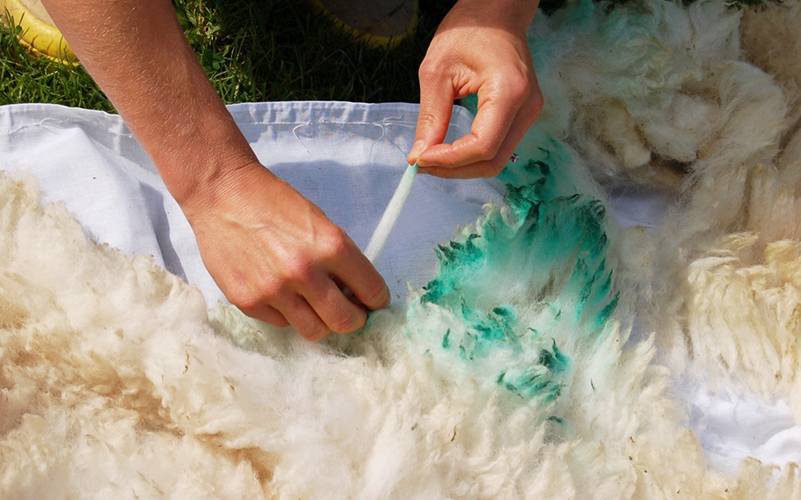 Research
Research

Subject
Gwlana | WWoolgathering: Gathering ‘Residual Culture’ in Debate Over Welsh Upland Land-use
First and second supervisors
- Professor Jane Rendell (The Bartlett School of Architecture)
- Professor Sharon Morris (The Slade School of Fine Art)
Tertiary supervisor
Abstract
Post-Brexit, Welsh mountain Pumlumon, a microcosm of challenges facing the Welsh uplands, is a focus of heated debate between farming/rewilding and the site of a conspicuous abundance of ‘waste’ wool. In response, this research summons Welsh custom gwlana (woolgathering), which transformed upland wastes into textiles along/across margins of farmed/wild, as a feminist ‘critical spatial practice’ (Rendell 2003). It explores how gwlana, as a practice of ‘residual culture’ (Williams 1977) can inform renegotiation of the farming/rewilding binary in debate over Pumlumon, and, in the context of the Wellbeing of Future Generations (Wales) Act 2015, engender processes of multispecies wellbeing.
This practice-led research draws feminism, landscape studies, textiles, poetry and performance into new interpretations of residual culture. Given scant archival evidence of gwlana, it works between margins of field and archive, performing gwlana’s cycling processes of gathering-spinning-dyeing-knitting upland wastes as embodied, collaborative textile and textual practices. Where each process manifests a different temporality of waste, the research evaluates how gwlana enacts a ‘tensile ethic’ (Manning) of gathering, renegotiating tensions within land-use debate by gathering relations of care between times, generations and bodies of multispecies communities, language and land.
Over 5 annual cycles, the practice operates collaboratively with local farmers, schools, craft groups, conservation charities, environmental organisations and activists to process wool from a local breed of sheep into a flock of hats, which are auctioned in a ‘regathering’ at a local sheep mart. The 5 stages of this process, documented in the 5-part thesis, generate textiles and texts: gathering – wool/ballad; spinning – yarn/script; dyeing – coloured yarn/recipemaps; knitting – hats/patterns; regathering – auction/catalogue. The ‘residues’ of the practice are gathered and circulated to wider publics, stakeholders and policymakers through a quarterly broadsheet, which gives collective voice to contingent communities gathered across farming/rewilding binaries through gwlana, and offers ‘resources of hope’ (Williams) for development of land-use legislation under the Act.
Biography
Zoë Quick is an architect, artist and activist whose transdisciplinary practice engages poetry, performance and craft to facilitate collaborative and transformative encounters between archives and landscapes. She has led internationally acclaimed design projects for cultural institutions and landscapes, including the V&A, Kew Palace and Guggenheim Bilbao. Alongside her practice-led PhD, she currently teaches on the Masters in Sustainable Architecture, and the MSc in Sustainability and Behaviour Change at The Centre for Alternative Technology, Machynlleth. She has previously taught at The Bartlett School of Architecture, The Welsh School of Architecture (Cardiff University), The University of Nottingham, and Kingston University.
Funding
- London Arts and Humanities Partnership Studentship
Image: 'Testing a Lock’, Zoë Quick.
 Close
Close

